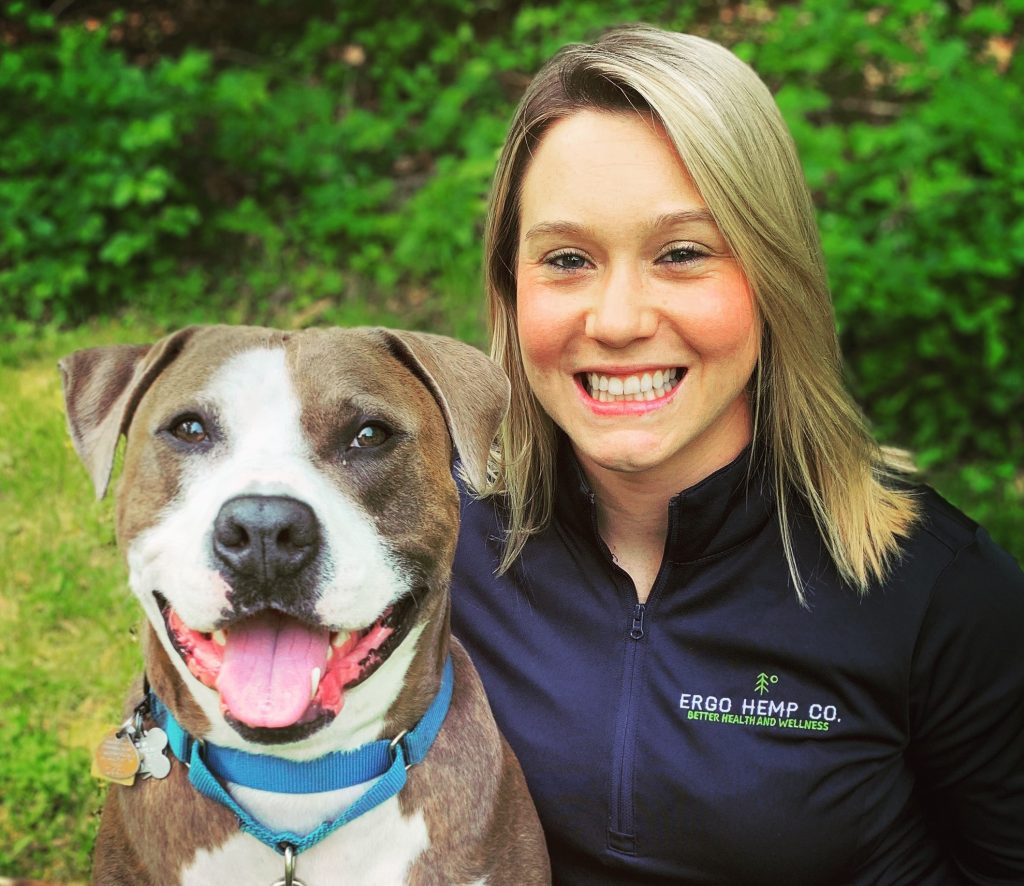How my Lyme disease experience led me to start a CBD company

By Meghan Ward
As a young, adventurous girl, I loved exploring the outdoors and its beauty. I grew up on Long Island, where the threat of ticks is high and playing in the woods did not reduce my chances of being infected. Around the age of seven, I was bitten by a tick and developed a fever of 104 degrees.
As time went on, I had constant “growing” pains in my arms and legs. My mom and grandma would rub me down with menthol pain-relieving cream almost every night. I would wake up crying from the pain, wanting to go to the hospital. The thought of Lyme disease never occurred to us. This went on for YEARS!
Friends and family would remind me not to forget cream and aspirin wherever I would go because they knew how much agony I would be in otherwise. My head was always foggy, even with a healthy diet and exercise. I experienced constant muscle tightness and spasms.
Finally, a diagnosis
At that point, I had had enough! During my freshman year of college, I explained my symptoms to my doctor. Still the same height since early high school, I could no longer blame my symptoms on growing pains. Finally, tests showed that I had Lyme disease.
After initial antibiotic treatment, symptoms persisted. I was then misdiagnosed with fibromyalgia and again handed pharmaceuticals. Diagnosed with Lyme once again by a specialist, I was given more pharmaceuticals. After rounds of antibiotics and enduring their never-ending list of side effects, I decided to stop using them.
In 2016, I visited a friend in California and came across cannabidiol—generally referred to as CBD. (CBD is a chemical component of Cannabis sativa, which also includes the marijuana plant.) Desperate to alleviate my pain, I decided to try it out. The first time I tried CBD, I felt relief. My muscle and joint pain subsided. I did not wake up in the middle of the night to slather cream all over. A whole new chapter began, as I finally found a natural remedy to help me cope with agonizing Lyme disease symptoms.
As I tried a variety of CBD products, I quickly learned that not all CBD is created equal. Some companies were selling falsely advertised CBD products with little to no CBD. I needed a high-quality product – from a company I could trust to share what was in their products and, more importantly, what was not in them. Eventually, I formed my own CBD company. Now, I find that educating people about how CBD can help them is a significant part of my job.
Important things to know about CBD
Because of its close relationship with marijuana, there’s a lot of stigma surrounding CBD. It’s often mistaken for THC, the cannabinoid (compound found in the cannabis family) that gets you high. There are over 100+ cannabinoids found in the cannabis plant species – THC gets you high, CBD does not. CBD is a non-intoxicating compound found in the cannabis plant.
However, although CBD doesn’t get you high, it does affect your brain. Research shows CBD interacts with receptors found in the central nervous system. This is why CBD can be used to help anxiety, PTSD, depression and many other neurological/mental health disorders.
CBD can also help you sleep. It increases the availability of serotonin which has soothing, anti-anxiety effects. It also helps lower inflammation which promotes sounder sleep. CBD can act as an alternative natural method to help you fall asleep and stay asleep, helping you get the rest you need. Sleep is so crucial to a healthy mind and body
CBD possesses an antibacterial effect, can reduce headache and nausea, strengthens the immune system, decreases pain caused by peripheral neuropathy, provides anticonvulsant properties and controls nerve episodes, anxiety, and depression. These are many symptoms exhibited by those suffering from Lyme disease. It is best to discuss a CBD regimen with your healthcare provider to determine the best method of treatment.
One question I get a lot is whether or not it’s legal. CBD is federally legal as long as there is less than .03% THC. While it is federally legal, states have different laws and restrictions on CBD. In some states, CBD is illegal. In others, you can buy it with a prescription. In some others, you can walk into a store and purchase CBD legally right then and there. Click here to find out the laws in your state.
(Disclaimer: These statements have not been evaluated by the Food and Drug Administration (FDA). These products are not intended to diagnose, treat, cure, or prevent any disease.)
Meghan Ward is Founder and CEO of Ergo Hemp Co.




















We invite you to comment on our Facebook page.
Visit LymeDisease.org Facebook Page